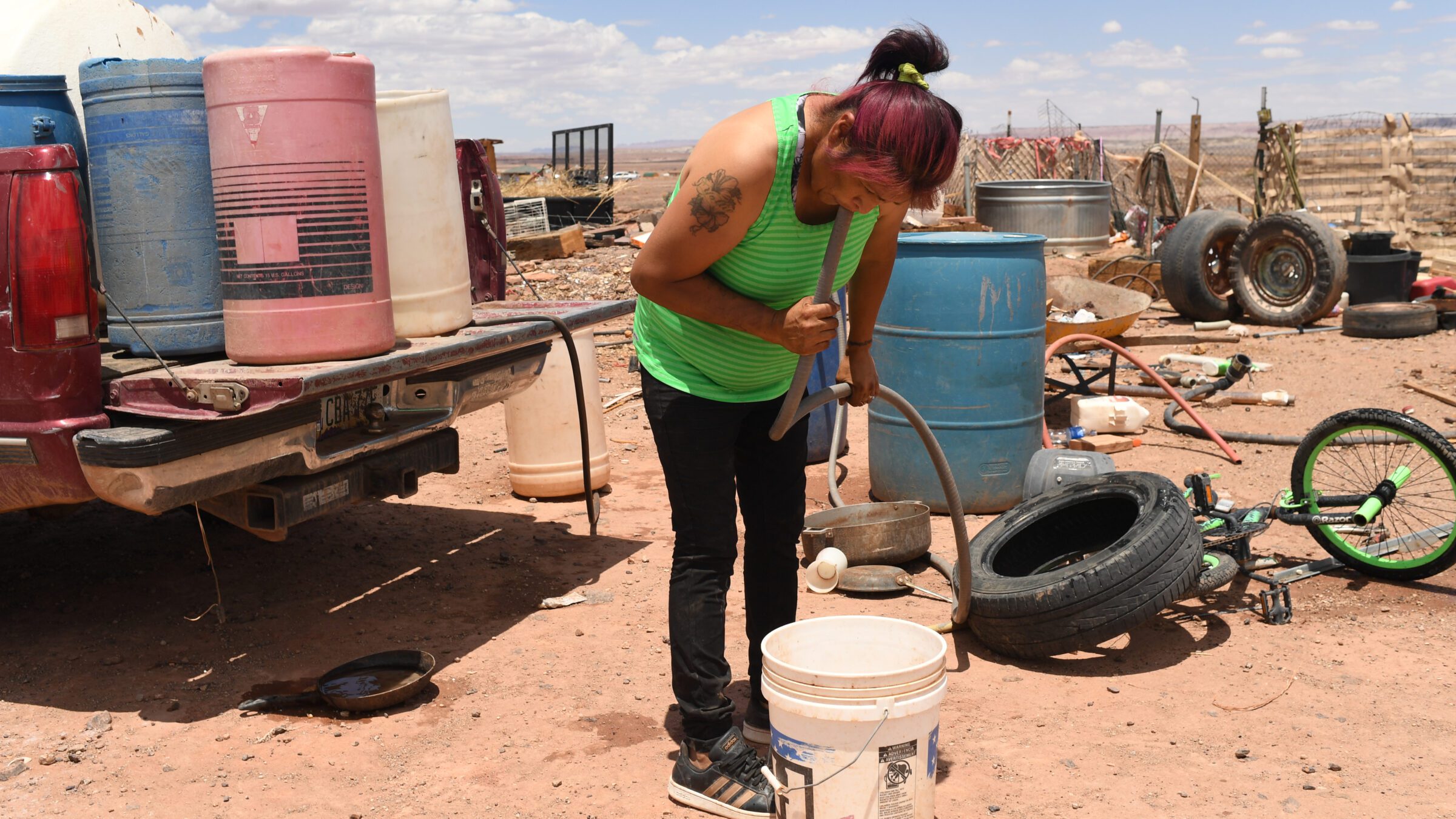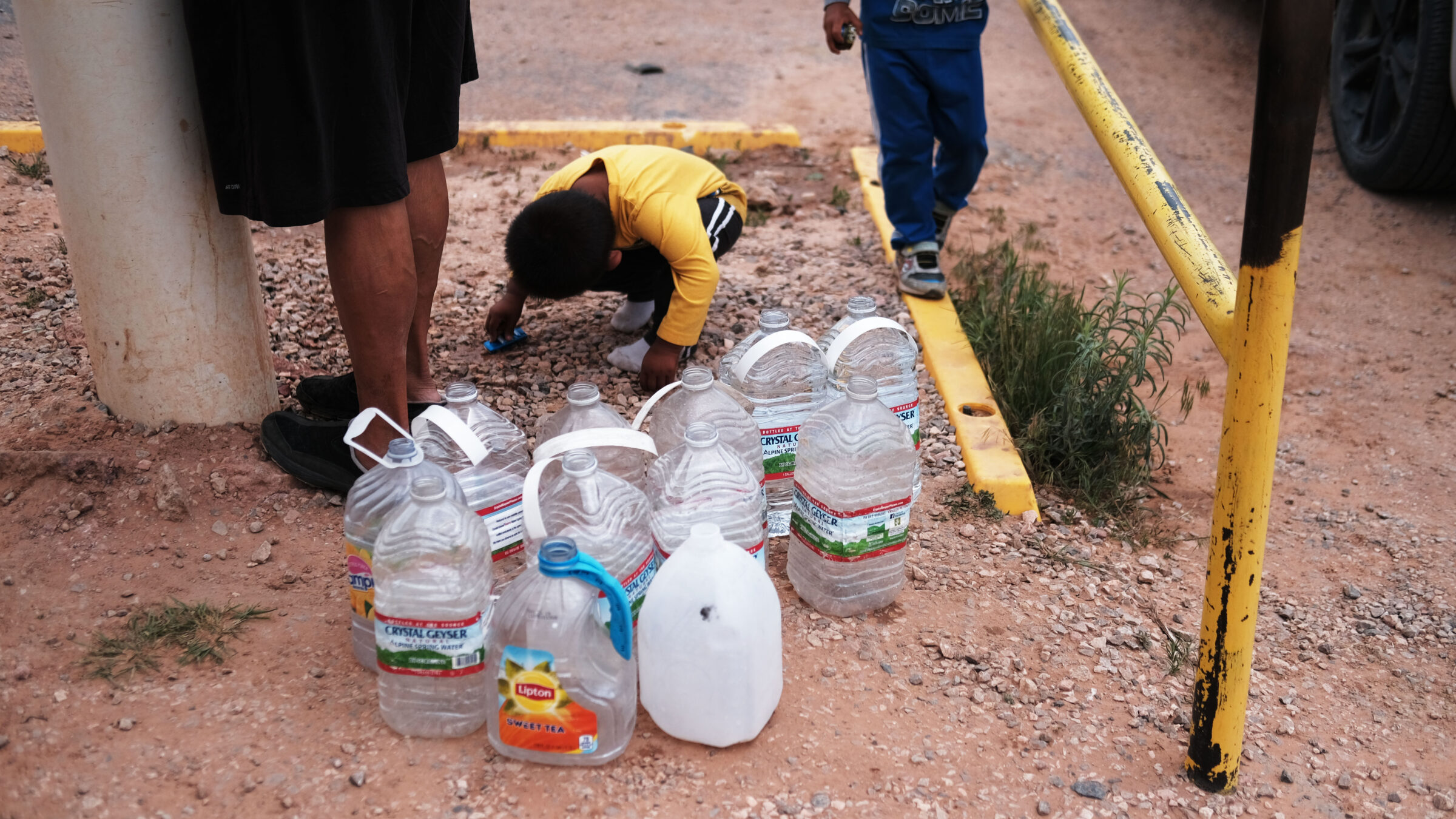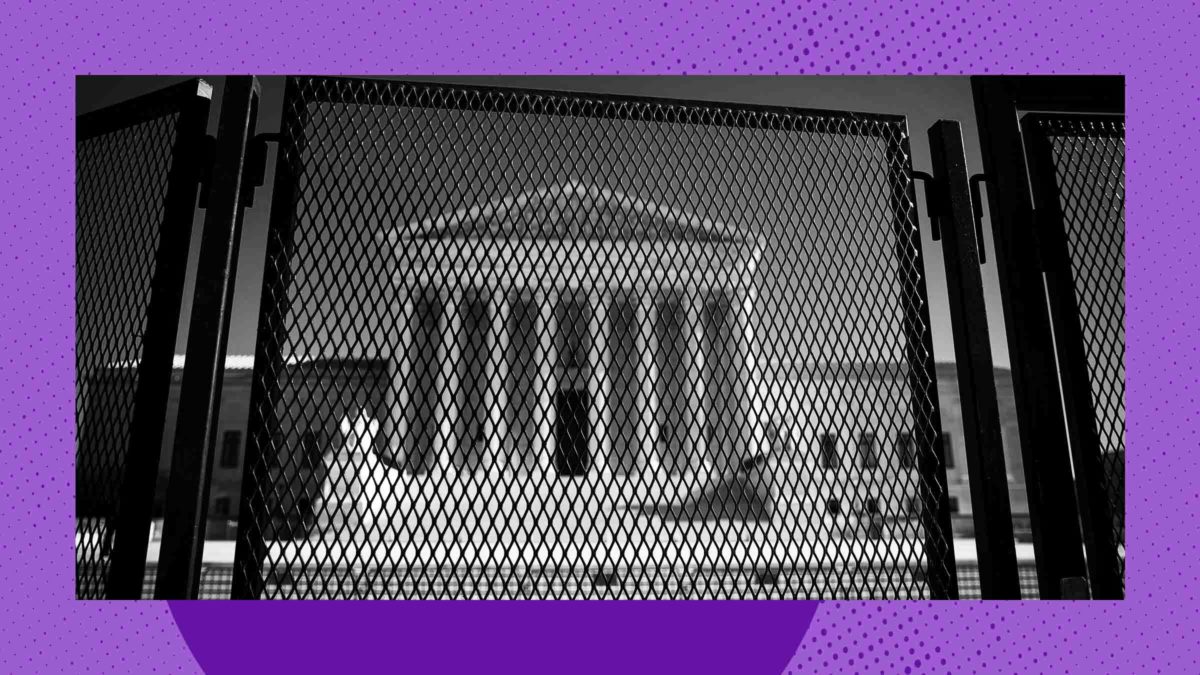Decades of severe drought have made the Colorado River’s water a precious, dwindling resource. Since the turn of the century, the river’s flow has declined about 20 percent, and could approach 40 percent by 2050. Rising temperatures from climate change mean that drought conditions will likely worsen. Lake Mead and Lake Powell, two of the nation’s largest reservoirs, reached historic lows in 2021, and may not fill again in the lifetimes of anyone reading this sentence.
The states through which the river runs—Arizona, California, Colorado, Nevada, New Mexico, and Utah—along with the federal government on behalf of various tribes, have battled over rights to the Colorado River for years. But the government’s advocacy for the Navajo Navajo, which spans parts of Arizona, New Mexico, and Utah, wasn’t particularly thorough. Even though the river flows along the Nation’s northwest border, the government never staked the Nation’s claim to the river’s mainstem—only to certain offshoots of it. When the tribe tried to intervene on its own behalf in 1963, the Department of the Interior blocked them from doing so. As a result, the Navajo Nation has faced water shortages for years. Nation residents use an average of seven gallons of water per day; the U.S. average is 82 gallons per person.
Five decades later, the tribe is still fighting for its share of the Colorado River. Earlier this week, the Supreme Court heard oral argument in the latest chapter of this fight, Arizona v. Navajo Nation. At issue is the government’s promise in an 1868 treaty to provide the Navajo with a “permanent homeland.” Water rights aren’t explicitly laid out in the treaty, but the Nation argues that a “permanent home” necessarily includes adequate access to water. They want the government to assess the Nation’s water needs and come up with a plan for actually meeting them.



